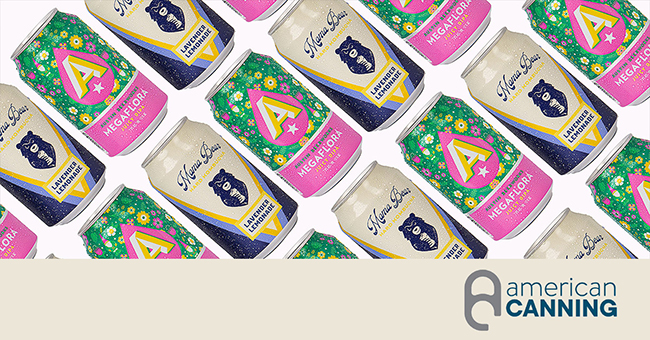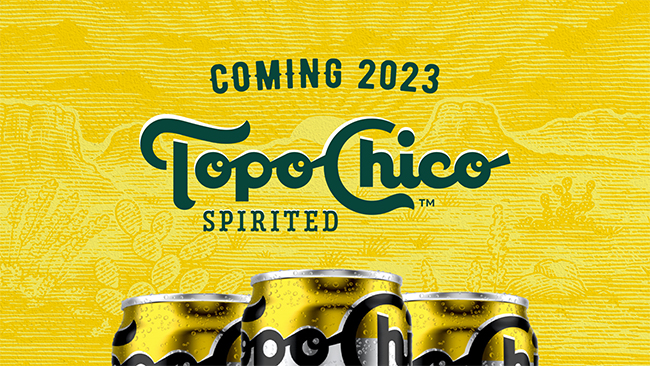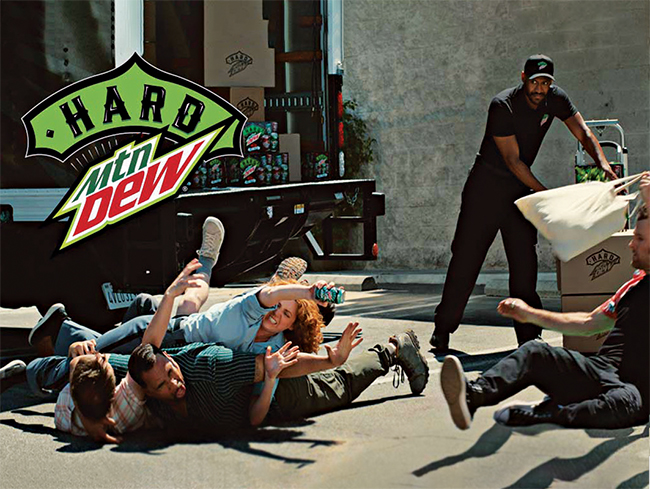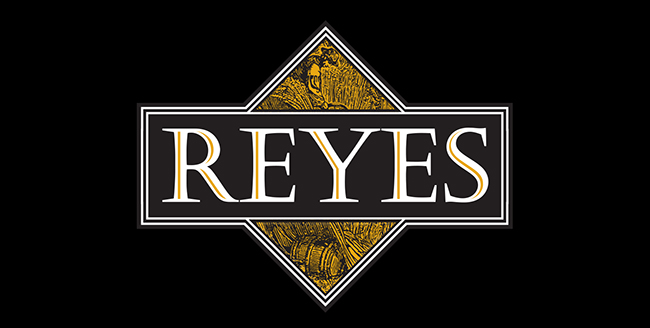Brewscape: The Latest Craft Beer Brand News
Modern Times’ Anaheim Taproom Closes; Merger with Maui Done; Former CEO Jennifer Briggs Exits
Leisuretown, Modern Times’ Anaheim, California-based taproom, complete with a swimming pool, has closed, Brewbound has confirmed. News of the closure was first reported by Spectrum News 1.
Social media profiles for the location have been taken down, but Spectrum News 1 cited a statement Modern Times posted in October that the location was “closing its doors for good.”
“It has been an incredible, joyous, heartbreaking, life-affirming journey, and — even though we are deeply saddened to see it end — we cannot thank you enough for being part of it,” the statement read. “This is a hard day, but we’re not done. Not by a long shot. More to come.”
The Anaheim taproom is the fifth Modern Times location to close this year. With its closing, 33 employees are out of work, Brewbound has learned. In February, the company shuttered its taprooms in Portland, Oregon; and Oakland, Santa Barbara and Los Angeles, California, which resulted in the termination of 73 employees. Modern Times’ three remaining taprooms in Encinitas and San Diego are still open, according to the company’s website.
The end of operations in Anaheim happened in mid-October.
On Oct. 31, Maui Brewing closed on its acquisition of Modern Times as the companies merged to form Craft ‘Ohana. Maui was slated to acquire the business for $15.3 million as the backup bidder in an auction that saw offers as high as $21 million. However, Maui ended up paying $10 million for the business, Brewbound has learned. The Anaheim location was excluded from the sale.
In August, former Modern Times CEO Jennifer Briggs was promoted to chief experience officer of the combined company, a role that was expected to oversee “human resources, cultural development, DE&I [diversity, equity and inclusion], marketing, brand development, direct-to-consumer and hospitality functions.” However, Briggs decided not to continue with the company and her last day was in October, she told Brewbound. The split was amicable.
Briggs steered Modern Times through stormy seas and to its eventual sale to Maui. The company’s troubles bubbled to the surface in May 2021 when founder and former CEO Jacob McKean resigned after Modern Times was called out for fostering a toxic workplace culture in the industry-wide reckoning that began on social media last year. Briggs’ tenure included guiding Modern Times through a court-ordered receivership, and an auction process that included more than a few hiccups.
Modern Times’ financial status was illustrated in court records during the receiver mandated auction process in June, which revealed the company would owe a total of $8.28 million over the 186.3 months then-remaining on its lease. Rent for the Anaheim location cost $44,455 per month, more than twice the monthly rent of any other location.
In 2019, Modern Times valued itself at $264 million in financial records shared as part of a crowdfunding campaign on WeFunder.
American Canning Signs Agreement with Ball, Decreases Order Minimum for Printed Cans to 1 Truckload
American Canning, an Austin, Texas-based aluminum can and packaging supplies provider, has signed a supply agreement with global can manufacturer Ball Corp. as an “official distributor” of blank and printed brite cans.
Through the agreement, American Canning can order printed cans with a minimum order requirement of 1 truckload per SKU (about 204,000 standard 12 oz. cans).
Brite can minimum orders will vary by can size and style, but will be about a half-pallet of standard 12 oz. cans, according to an American Canning spokesperson.
The agreement includes all core can sizes for brites and printed cans, including 12 oz. standard and sleek, 16 oz. standard and 7.5 oz. sleek.
The news may be a welcome option for bev-alc producers who were left to find alternative can supply solutions this year, after Ball announced it increased its minimum order requirement for printed cans from one truckload per SKU to five truckloads (a jump from 204,000 cans to more than 1 million cans). The change was announced in November 2021 and went into effect in March.
Earlier this fall, producers got a slight glimmer of hope when a Ball representative told a brewer client, in an email obtained by Brewbound, that they had been “give the green light to start printing single truck load runs again” with a surcharge of $3,500 per truck for orders fewer than three truckloads.
American Canning serves approximately 6,000 beverage producers across beer, wine and spirits, but the majority of its clients are craft breweries. The company’s agreement with Ball will now allow those small- and mid-sized producers to make smaller printed can orders, without the extra surcharge.
“We have purchased and sold Ball brite cans for many years now,” Monica Christmas, American Canning’s purchasing manager, said in a press release. “This agreement allows us to serve our customer base with a more diverse product portfolio through the addition of printed cans. It also guarantees supply and lead times in a more consistent way than we previously had.”
In 2021, American Canning announced plans to build its own aluminum can manufacturing plant. The plant is set to be operational in November, with sales available in Q1 2023, according to the spokesperson. The plant will have an annual production capacity of 300 million cans (both printed and blank).
American Canning co-founder David Racino spoke to Brewbound in December about the plant, which will use a “more sustainable” method for can manufacturing. The plant will also use a “liner technology that includes the use of a pre-coated aluminum sheet,” which will protect “hard-to-hold beverage ingredients as craft expands into more beverage categories,” the spokesperson said.
In February, American Canning moved its operations to a 155,000 sq. ft. facility. The new space increased capacity for the company three-fold, to an estimated 20 million cans, and houses the manufacturing plant. The company also added its second shrink-sleeve line in June, increasing its shrink sleeving capacity to 1.5 million cans per week.
Ball will hold its Q3 earnings call with investors Thursday, November 3. In its second quarter conference in August, the company announced plans to permanently close manufacturing facilities in Phoenix, Arizona, and St. Paul, Minnesota. Ball CEO Daniel Fisher said its customers’ decisions to increase price at the risk of volume losses were to blame for the closures.
Beer Institute Picks Brian Crawford as Next President & CEO
Five months after the departure of Jim McGreevy, the Beer Institute (BI) has named its next president and CEO.
In October, the trade group announced the appointment of Brian Crawford, the executive vice president of government affairs for the American Hotel and Lodging Association (AHLA), as its next leader during the organization’s annual meeting in Chicago. Crawford will assume the role on December 5.
“I am incredibly honored to join the Beer Institute team and become part of the vibrant American beer industry,” Crawford said in a press release. “It is clear that the beer industry is strongest when we work together to strengthen and grow the beer category
for brewers and suppliers, consumers and communities alike. I look forward to starting and working every day to promote the more than two million hardworking Americans whose jobs rely on beer.”
Crawford joins the BI as beer continues to lose share of total beverage alcohol to spirits. In recent years, the BI has attempted to beat back efforts by spirits producers to achieve tax equalization and expand market access in states, as well as ongoing aluminum tariffs and other supply chain issues. Meanwhile, spirits-based, ready-to-drink canned cocktails have grown in popularity over the last couple of years.
“The beer industry has seen significant category growth and with Brian’s leadership, we will be able to accelerate that momentum with leaders in Washington and help ensure beer companies are positioned to best serve our customers, consumers and communities,” Brendan Whitworth, Anheuser-Busch CEO and chairman of the BI, said in a release. “Brian brings deep experience across government and public affairs, as well as a strong foundation driving policy outcomes, making him uniquely qualified for this important role.”
“The past two years have been pivotal to the future of our industry, and selecting a new chief executive of the Beer Institute has been particularly important as we look to the road ahead,” added Gavin Hattersley, Molson Coors Beverage Company CEO and vice chairman of the BI. “Whether that means challenging aluminum tariffs or advocating fair tax rates for beer, I have no doubt that Brian has the experience, passion and integrity necessary to lead us into an exciting next chapter.”
Crawford assumes the role from Jim McGreevy, who departed the organization that he had led since 2014 to join the Coca-Cola Company’s North America Political Action Committees (PACS), as VP of public policy, federal government relations and political engagement (PPGR).
During his tenure with the BI, McGreevy helped the industry achieve now-permanent federal excise tax relief via the Craft Beverage Modernization and Tax Reform Act in 2020.
Crawford, who joined AHLA in February 2014, has led the organization’s efforts in Washington, D.C., as well as led the “lodging industry’s largest political action committee, HotelPAC,” according to a bio. Crawford was named to The Hill’s list of top lobbyists in 2021.
Prior to joining AHLA, Crawford worked for more than eight years as a senior staffer in the House of Representatives, including five as chief of staff for former U.S. Rep. Tom Rooney (R-FL), deputy chief of staff for former U.S. Rep. Ric Keller (R-FL).
Crawford also worked with trade group the Associated Builders and Contractors for six years, including more than three as senior director of legislative affairs. He also spent nearly two years at the National Small Business Association as a manager of government affairs.
Topo Chico Spirited: Spirit-Based Offering Coming From Molson Coors in 2023
Topo Chico’s fated move into hard spirits is coming in 2023, via Molson Coors.
On the heels of the fast-growing Topo Chico Hard Seltzer brand, Molson Coors will launch a spirit-based version of Topo Chico in key markets, such as the southwest and southeast and parts of the Midwest.
David Coors, Molson Coors’ VP of next generation beverages, made the reveal during the company’s distributor convention in Nashville. Coors reminded wholesalers that he warned them a wave of spirit-based, ready-to-drink (RTD) canned cocktails was coming during last year’s convention.
Topo Chico Spirited (5.9% ABV) will come in three flavors, two with a tequila base and one with a vodka base.
Jamie Wideman, Molson Coors VP of innovations, and her team worked closely with the Coca-Cola team to develop the product.
Wideman told wholesalers that the line is “premium, bar-worthy cocktails, ready-to-drink and made with top-notch ingredients,” including blanco tequila from Mexico. Topo Chico is made with “real spirits, real juice and sparkling water.” The goal, Wideman said, was to create “sessionable, light-flavored cocktails.”
“These are real cocktails, not hard seltzer,” she added. “Our packaging is going to cue cocktail. We know the opportunity here is massive. We’ve got a winner on our hands.”
Matt Escalante, Molson Coors VP of marketing for hard seltzers, stressed that Topo Chico Spirits “isn’t a replacement for our hard seltzer.”
Escalante reeled off a few highlights from Topo Chico Hard Seltzer’s national launch, including:
• Margarita variety pack was Drizly’s No. 1 selling new item in Q2;
• Topo Chico Ranch Water is the “fastest turning” ranch water pack in the country;
• The brand family is now “neck and neck” with Bud Light Seltzer for the No. 3 hard seltzer spot, excluding spirit-based offerings, namely High Noon Sun Sips.
Year-to-date through September 4, off-premise dollar sales of Topo Chico’s variety pack are up +86.4%, to nearly $94 million, in multi-outlet and convenience stores tracked by market research firm IRI. The pack is the 45th overall best-selling beer category item at retail and Molson Coors’ eighth best-seller in its portfolio, according to the firm.
Meanwhile, Margarita sales are nearly $29 million, Ranch Water sales have surpassed $17 million, its Strawberry Guava pack has posted more than $13 million in sales, and its Tangy Lemon Lime single can has topped $6 million (+149.5% year-over-year).
In Topo Chico’s next chapter, the brand has an opportunity to reach new drinkers and raise awareness with 21- to 34-year-olds, Escalante said.
Escalante said the original pack is among the five fastest turning 12-packs in the seltzer segment, and Margarita being “highly
incremental,” with the majority of Topo Chico Margarita buyers new to the franchise. Escalante said the company needs to get these core packs “everywhere,” and the company will support them with national advertising.
“We have big ambitions to be the No. 1 hard seltzer with Latinos,” he said. “We already index 25% higher with Latino drinkers than any other seltzer. And it’s not just Mexican Americans either. It’s Puerto Ricans, Cubans, Dominicans, a wide variety of Latino Americans.”
Boston Beer & PepsiCo’s Hard MTN Dew Distribution Deal Challenged in Virginia by Blue Ridge and Reyes’ Premium
Wholesalers’ fourth category frustrations finally boiled over in October, as Blue Ridge Beverage Company and Premium Distributors, a Reyes Beer Division subsidiary, filed a complaint with the Virginia Alcoholic Beverage Control Authority against Boston Beer Company over its appointment of PepsiCo’s Blue Cloud Distribution as the distributor of Hard MTN Dew.
This marks the first formal challenge brought by an existing Boston Beer wholesaler to the company’s distribution agreement with PepsiCo for Hard MTN Dew.
In the 13-page complaint, Blue Ridge and Premium argue that Boston Beer’s appointment of Blue Cloud violated the state’s beer franchise act (Beer Act), which reads: “no brewery shall enter into any agreement with more than one beer wholesaler for the purpose of establishing more than one agreement for its brands of beer in any territory.”
Premium has distributed Boston Beer offerings in northern, central and southeastern Virginia since acquiring Northern Virginia Beverage (2004), Chesbay Distributing (2012) and Loveland Distributing (2018).
Meanwhile, Blue Ridge has distributed Boston Beer products in western Virginia since being appointed by the brewery in the mid-1980s, as well as through acquisitions of “several distributors” in southwest Virginia.
The distributors argue that the law prohibits Boston Beer from “entering into any agreement that splits the distribution rights to its brands of beer between different distributors in the same designated sales territory.” As such, they argue Boston Beer “established an unlawful ‘dual-distribution’ scheme for its Hard MTN Dew brand” in the 37 counties and cities where Premium serves as Boston Beer’s “exclusive distributor,” as well as the 43 counties and cities where Blue Ridge holds exclusivity. The law does allow for dual distribution deals in situations such as one brewery purchasing another, but they note that this instance does not apply.
Premium and Blue Ridge also argue Boston Beer has “unilaterally amended” their distribution agreements by “eliminating” their role as Hard MTN Dew’s exclusive distributor in their respective territories without providing at least 90 days’ written notice.
“Boston Beer’s actions have been undertaken with full knowledge that the Beer Act does not permit a brewery (and the holder of a Virginia Beer Importer’s license) to divide its brands of malt beverages between two or more distributors appointed to service the same sales territory,” the complaint reads.
Premium and Blue Ridge allege Boston Beer’s violations of the act were in “bad faith.”
“Boston Beer knew, or should have known, that its ‘collaboration’ with PepsiCo to manufacture the Hard MTN Dew brand of malt beverage and distribute the same exclusively through distributors owned and controlled by PepsiCo would trample on the long-standing exclusive franchise distribution rights that Boston Beer had already granted to its other distributors, such as Premium and Blue Ridge,” they argue.
“The appointment of a single county or city to which Boston Beer had already granted distribution rights to another could be
reasonably termed a mistake,” they continued. “To appoint 80 such cities and counties, however, displays a conscious disregard by Boston Beer towards both the good faith obligations owed to its existing distributors and to the laws of the Commonwealth.”
The distributors are asking the ABC to enter orders:
- holding Boston Beer in violation of the Beer Act;
- nullifying the appointment of Blue Cloud as the
distributor of Hard MTN Dew in territories already
appointed to Premium and Blue Ridge; - barring Boston Beer from appointing any distributor
other than Premium and Blue Ridge to distribute the
company’s malt beverages in their respective sales
territories; - asserting that Boston Beer acted in bad faith in
violating the Beer Act; - awarding Premium and Blue Ridge “reasonable costs
and attorney fees;” - and granting “such relief as the board shall deem
appropriate.”
In a statement, a Reyes spokesperson said: “We deeply respect Boston Beer and our longstanding business relationship, but we are also committed to upholding the franchise laws of the Commonwealth of Virginia. We cannot comment further due to the ongoing nature of the litigation.”
A Boston Beer spokesperson declined to comment on the pending litigation.
Reyes Strikes Again with Deal for Paradise Beverage in Hawaii
The Reyes Beer Division continues to wheel and deal. Just one day after revealing a 16 million case deal for Capitol Wright Distributing near Austin, Texas, the largest beer wholesaler in the U.S. announced on Oct. 5 an agreement to acquire Paradise Beverage in Hawaii, the company’s 12th market.
The transaction is slated to close in early December. Once closed, Reyes will add about 8.9 million cases and 2,300 customers to its operations. Key suppliers include Molson Coors, Constellation Brands, Boston Beer Company, Diageo, Heineken USA and Maui Brewing.
The addition of Paradise, Capitol Wright (slated to close in December) and DET Distributing in Tennessee (expected to close in November) will put Reyes’ case volume firmly above 300 million cases.
Reyes will operate Paradise under the Hawaii Beverage LLC banner and maintain the distributor’s five facilities across the state.
“On the heels of announcing new business in Tennessee and Texas, we are humbled by this opportunity in Hawaii,” Reyes Beer
Division CEO Tom Day said in a press release. “We are fortunate to be in the position of accelerated growth that we’re in today – and it’s all thanks to our hard working teams. We wouldn’t be here, or be approached for opportunities like these, without our
employees, their high standards of excellence and the service they provide to our suppliers and customers every day.”
Tom Reyes, president of Reyes Beer Division West, noted in the release that the Paradise deal is the first expansion of the Reyes Beer Division West footprint outside of California.
“Paradise and Reyes have similar missions and values rooted in integrity and excellence and we are eager to join our teams and get to work,” he added.
“Our family has been incredibly honored to have been owners of Paradise Beverages for over four decades and it is bittersweet to say goodbye to this company and its exceptional group of people,” Anderson Holdings chairman and CEO William Anderson said in the release. “I am extremely grateful to John Erickson, president of Paradise Beverages, for his exemplary leadership and his team’s hard work to build an organization of which our family is very proud. We strongly believe that Reyes is the right owner going forward and will continue to build on Paradise’s strong performance and deliver excellence for our many long-term customers, employees, and the Hawaiian business community.”
Paradise Beverage was founded in 1948 as the Crockett Sales Company, according to its website. The company, which adopted its current name in 1976, grew by acquisition several times in its history, adding the Coors and Stroh brands in 1980 and the portfolio of McKesson Wine & Spirits in 1988. Paradise acquired rights to Miller in 1995 and Heineken and Samuel Adams in 1996.


Receive your free magazine!
Join thousands of other food and beverage professionals who utilize BevNET Magazine to stay up-to-date on current trends and news within the food and beverage world.
Receive your free copy of the magazine 6x per year in digital or print and utilize insights on consumer behavior, brand growth, category volume, and trend forecasting.
Subscribe




